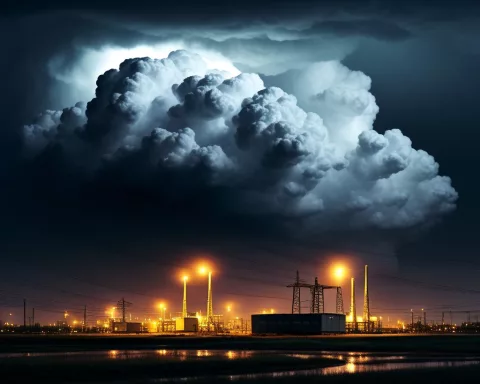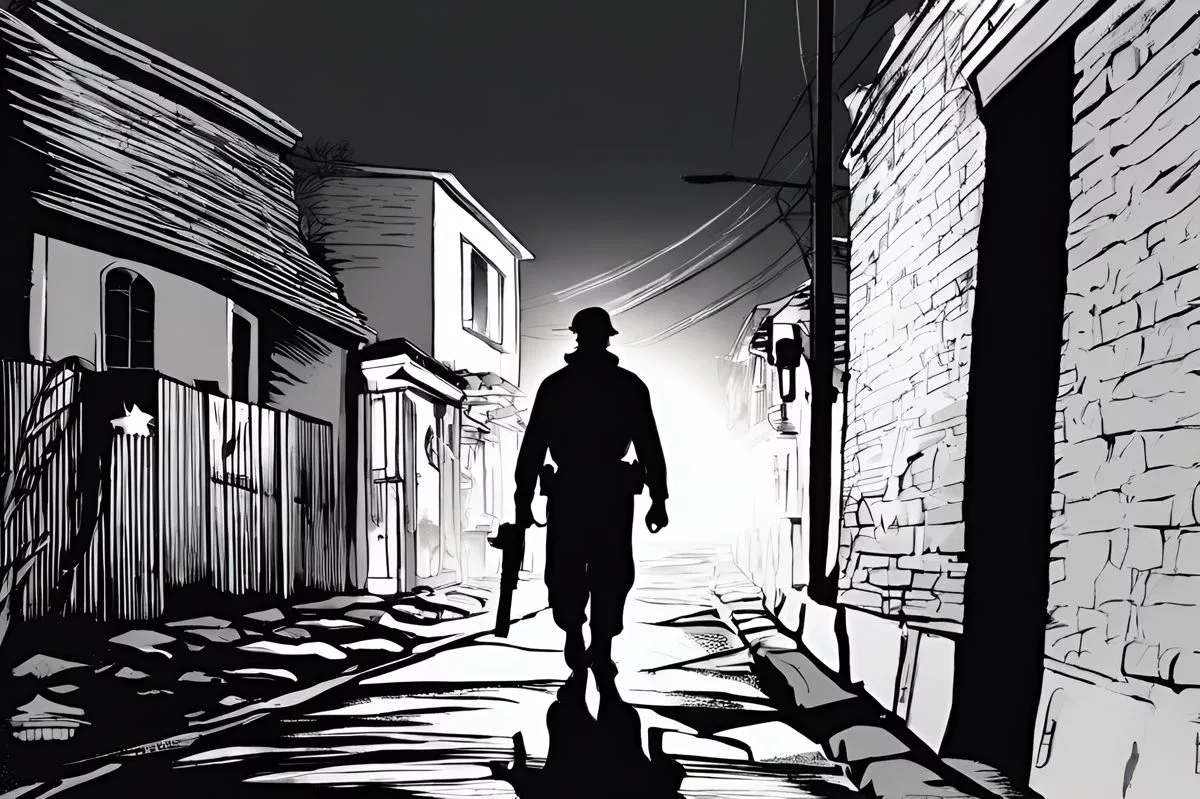Cape Town is fighting against Eskom’s shocking plan to raise electricity prices by as much as 44%. This increase could make life harder for many residents and small businesses, leading to higher bills and more protests. Mayor Geordin Hill-Lewis is pushing back, worried about how these changes will hurt the city’s economy and its most vulnerable people. Despite the challenges, Cape Town is working hard to support low-income households with programs that offer cheaper electricity, but these efforts are now at risk because of Eskom’s proposed hikes. The city’s determination to stand strong shows its commitment to a fair and brighter future for everyone.
What are the impacts of Eskom’s proposed tariff increases on Cape Town?
Eskom’s proposed tariff increases of up to 44% threaten Cape Town’s economy and vulnerable residents. This could lead to higher living costs, financial instability for small businesses, and increased protests, complicating the city’s efforts to provide affordable electricity and support those in need.
A Controversial Announcement
On September 23, 2024, the National Energy Regulator of South Africa (NERSA) announced Eskom’s Multi-Year Price Determination (MYPD) 6, which covers the years 2025/26 to 2027/28. This announcement stirred immediate backlash, especially in Cape Town. The proposed 44% electricity tariff hike for municipalities and 36% for direct customers sparked outrage among residents, businesses, and local government officials alike.
Alderman Xanthea Limberg, the City’s Mayoral Committee Member for Energy, voiced deep concerns about the proposed increases. She highlighted the devastating effects such hikes would have on the city’s residents and small businesses, who are already facing financial instability. The looming threat of higher electricity costs has only exacerbated these precarious financial situations.
The proposed tariff increase has become a significant social issue, igniting protests across Cape Town. Residents have taken to the streets to express their frustration and fear, reflecting broader socio-economic challenges. The timing of these increases, amidst ongoing economic uncertainty, has further fueled public discontent.
Leadership and Opposition
Mayor Geordin Hill-Lewis has actively opposed the tariff increases. In a letter to NERSA, he urged the national energy regulator to reconsider Eskom’s request. He emphasized the severe consequences such a substantial increase would have on the city’s economy and social fabric. The Mayor’s proactive stance underscores the city’s commitment to protecting its residents from economic hardship.
A staggering 75% of Cape Town’s income from electricity sales is directed to Eskom, highlighting the city’s vulnerability to Eskom’s pricing strategies. The proposed tariff hike would significantly strain the city’s financial resources, limiting its ability to invest in crucial infrastructure and social programs.
During this period of turmoil, the City has also focused on addressing meter tampering issues. Investigations revealed that some residents have manipulated meters to steal electricity, complicating the broader debate on electricity pricing and fairness. The City, which owns all meters and has the legal authority to inspect them, found that most customers in areas like Lavender Hill are law-abiding and do not engage in tampering.
Efforts to Support Vulnerable Residents
Despite these challenges, Cape Town remains committed to supporting its lower-income residents. According to StatsSA’s Non-Financial Census data for municipalities released in March 2024, Cape Town has the highest proportion of residents receiving free basic water and electricity. This reflects the city’s dedication to shielding its most vulnerable citizens from the full impact of Eskom’s price hikes.
One of Cape Town’s most significant initiatives is the Lifeline electricity tariff. This progressive measure has provided substantial relief to many households. The City reduced the cost of this tariff by 44% for those averaging 450 units of electricity per month, translating to a saving of R1.89 per unit. This reduction has been a significant relief for indigent households.
No other municipality in South Africa has matched Cape Town’s commitment to reducing electricity prices for low-income households. However, the proposed Eskom tariff increase threatens to undermine these efforts. The City’s protective measures for indigent households have become increasingly challenging to maintain in the face of rising electricity costs.
Expanding Relief Efforts
Last year, Cape Town expanded the eligibility criteria for the Lifeline tariff. The number of units qualifying for the cheaper tariff increased from 350 to 600 units per month. This change provided much-needed relief to more households, ensuring those using up to 600 units per month enjoy significant savings. Specifically, Lifeline customers save R113.94 compared to their electricity costs two years ago.
The broader implications of Eskom’s proposed tariff hike are profound. The increase threatens to exacerbate economic inequalities and strain the social fabric of Cape Town. Small businesses, in particular, face an uncertain future as they grapple with higher operating costs. Many fear that the increased electricity costs could drive them out of business, leading to job losses and further economic decline.
The City’s battle against Eskom’s proposed tariff increase is a testament to its commitment to its residents. It highlights the broader struggle for economic justice and the need for sustainable, equitable energy policies. As Cape Town continues to navigate these challenges, the resilience and determination of its residents and leaders remain a source of hope and inspiration.
Historical and Artistic Context
In the context of historical and artistic movements, Cape Town’s resistance to the proposed tariff increases echoes the spirit of social activism and community solidarity that has characterized many transformative periods. Similar to the Arts and Crafts movement, which aimed to address the inequalities of the Industrial Revolution through community-centric design and production, Cape Town’s current efforts seek to ensure equitable distribution of modern energy access benefits.
Moreover, the City’s proactive measures reflect a broader trend towards sustainable urban development. Similar to the principles of the New Urbanism movement, which advocates for walkable, mixed-use communities designed with residents’ well-being in mind, Cape Town strives to create a resilient, inclusive city that meets all its inhabitants’ needs.
The Road Ahead
As the debate over Eskom’s proposed tariff increases continues, it is crucial to recognize the broader socio-economic dynamics at play. The City’s opposition is not just about preventing higher costs; it’s about safeguarding the future of Cape Town’s residents and businesses. This struggle represents a microcosm of the broader challenges urban centers face worldwide as they navigate modern energy consumption complexities and economic inequality.
Cape Town’s efforts to resist Eskom’s proposed tariff increases and protect its most vulnerable residents mark a critical juncture in the city’s history. It is a testament to the power of collective action and the importance of equitable policies in fostering a just and sustainable future. Through resilience and community solidarity, Cape Town continues to navigate its challenges, striving for a brighter, more inclusive future for all its residents.
FAQ on Cape Town’s Fight Against Eskom’s Proposed Tariff Increases
What is Eskom’s proposed tariff increase for Cape Town?
Eskom has proposed a staggering increase in electricity tariffs of up to 44% for municipalities like Cape Town and 36% for direct customers. These proposed hikes have raised significant concerns among residents, businesses, and local government officials.
Why is Mayor Geordin Hill-Lewis opposing the tariff increases?
Mayor Geordin Hill-Lewis is actively opposing the tariff increases due to the severe consequences they could have on Cape Town’s economy and its vulnerable residents. He has urged the National Energy Regulator of South Africa (NERSA) to reconsider Eskom’s request, emphasizing the potential financial instability it would bring to the city.
How do these proposed increases impact small businesses in Cape Town?
The proposed tariff increases threaten to exacerbate financial instability for small businesses, which are already facing challenges. Higher electricity costs may lead to increased operating expenses, potentially driving some businesses out of operation, resulting in job losses and further economic decline.
What initiatives does Cape Town have in place to support low-income households?
Cape Town has implemented several initiatives, including the Lifeline electricity tariff, which provides substantial relief to low-income households. The city reduced the cost of this tariff by 44% for those averaging 450 units of electricity per month. Additionally, Cape Town has the highest proportion of residents receiving free basic water and electricity in South Africa.
How has Cape Town adjusted the Lifeline tariff in response to economic challenges?
In response to increasing economic challenges, Cape Town expanded the eligibility criteria for the Lifeline tariff last year, increasing the number of qualifying units from 350 to 600 per month. This change has allowed more households to benefit from reduced electricity costs, providing significant savings for those using up to 600 units per month.
What are the broader implications of Eskom’s proposed tariff hikes for Cape Town?
The proposed tariff hikes pose serious risks for economic inequalities and the social fabric of Cape Town. They threaten to undermine the city’s efforts to support vulnerable residents and small businesses, potentially leading to increased discontent and social unrest. Cape Town’s struggle against these increases represents a broader challenge of achieving economic justice and sustainable energy policies in urban contexts.












